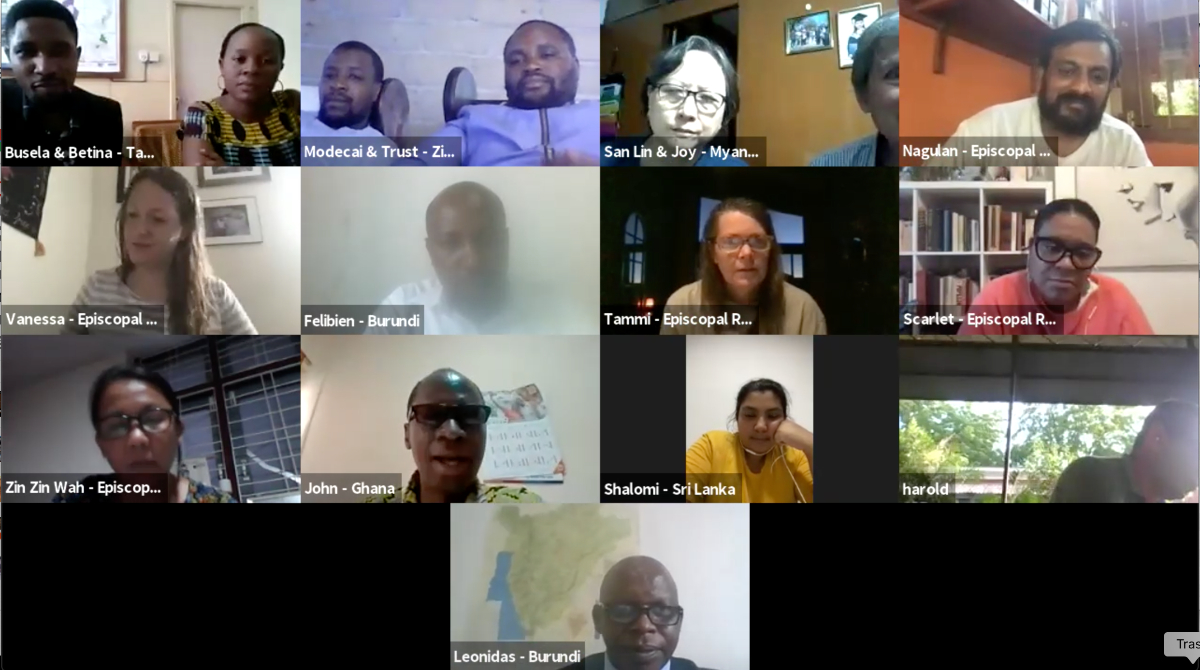Episcopal Relief & Development Responds to the COVID-19 Pandemic
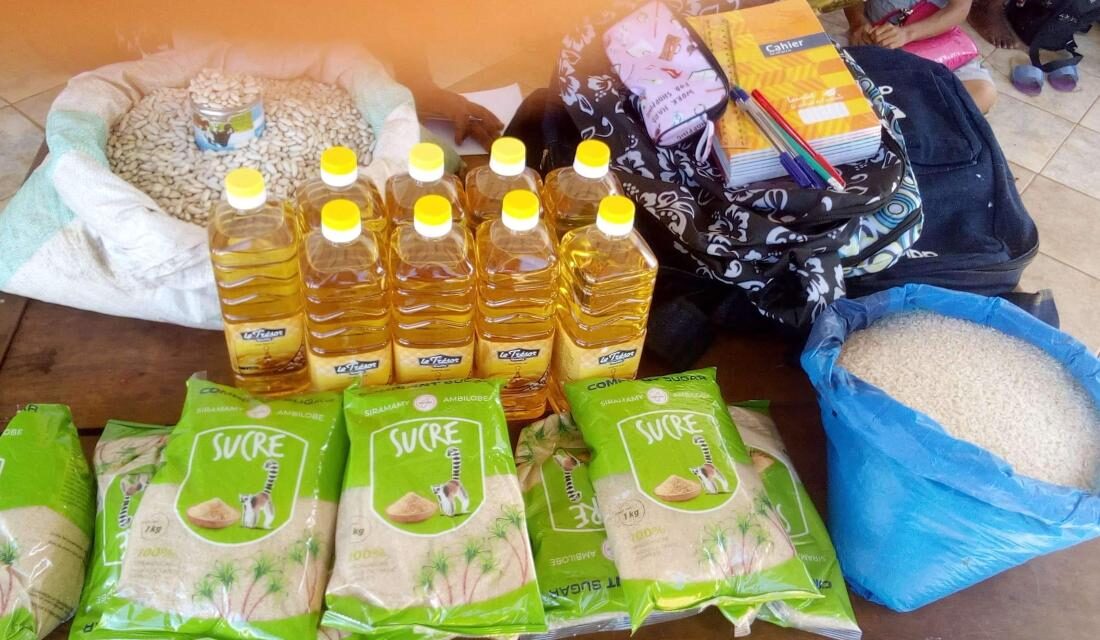
- Episcopal Relief & Development Responds to Civil Unrest and the COVID-19 Pandemic in South Sudan (April 29, 2022)
- Providing Assistance to Partners in Malawi, Nicaragua and the Philippines (March 25, 2022)
- Episcopal Relief & Development Supports Additional COVID-19 Emergency Responses Around the World (December 9, 2021)
- Episcopal Relief & Development Announces Additional COVID-19 Emergency Responses in the United States and Worldwide (August 26, 2021)
- Episcopal Relief & Development Supports CASA India in COVID-19 Response (May 10, 2021)
- Additional International and Domestic COVID-19 Responses (February 12, 2021)
- New International COVID-19 Programs and Partnerships (November 6, 2020)
- New COVID-19 Programs and Partnerships (September 30, 2020)
- Episcopal Relief & Development Launches New COVID-19 Pandemic Response Web Section (July 10, 2020)
- Continuing to Respond to the COVID-19 Pandemic in the United States (June 4, 2020)
- Supporting International Program Partners in Response to the COVID-19 Pandemic (June 3, 2020)
- Episcopal Relief & Development Continues to Partner with Local Organizations Worldwide in Response to COVID-19 (May 14, 2020)
- Episcopal Relief & Development and US Partners Respond to COVID-19 (May 7, 2020)
- Episcopal Relief & Development and Program Partners Respond in Communities Impacted by COVID-19 (April 20, 2020)
- Supporting the Multi-religious Faith in Action COVID-19 Initiative (April 17, 2020)
- Our Programs Respond to COVID-19 (April 3, 2020)
- Episcopal Relief & Development Responds to the COVID-19 Pandemic (March 25, 2020)
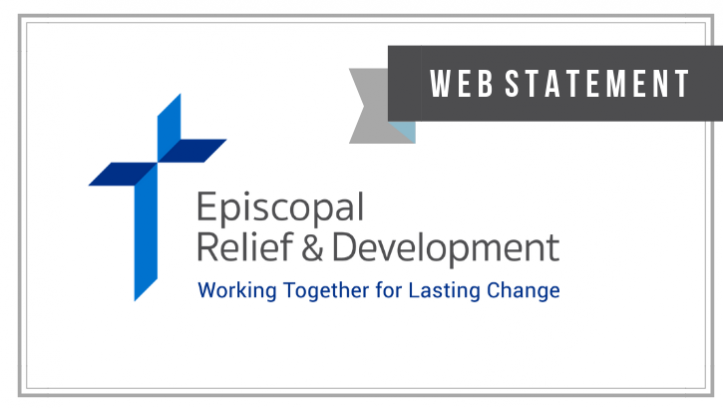 Providing Assistance to Partners in Malawi, Nicaragua and the Philippines
Providing Assistance to Partners in Malawi, Nicaragua and the Philippines
Web Statement
March 25, 2022
Episcopal Relief & Development continues to support domestic and international partners as they navigate the ongoing COVID-19 pandemic and climate-influenced events. The organization is partnering with the Anglican Council of Malawi (ACM), the Council of Protestant Churches of Nicaragua (CEPAD) and the E-CARE Foundation in the Philippines to provide assistance to people affected by overlapping disasters and to help individuals and families build resiliency to withstand future events.
“The COVID-19 pandemic has depleted many people’s psychological and financial resources, making it challenging for them to rebuild after cyclones and other natural disasters,” said Nagulan Nesiah, Senior Program Officer, Episcopal Relief & Development. “Our partners are addressing both physical and psychosocial needs, while keeping in mind COVID-19 prevention protocols and educational messages.”
ACM, with Episcopal Relief & Development’s support, is addressing both the COVID-19 pandemic and the flooding in Malawi caused by Tropical Cyclone Ana in January 2022 by distributing personal protective equipment (PPE), basic food items and other emergency supplies for people who lost their homes in the flooding. In addition, the Council is meeting with faith and community leaders to educate individuals and families about COVID-19 prevention methods and to disseminate accurate information about vaccines.
In Nicaragua, Episcopal Relief & Development is supporting CEPAD as it provides COVID-19 relief support to 120 households in 7 communities in the Kilambé region. CEPAD is also partnering with the local government to provide land to 10 households for homes and food cultivation and is working to expand its resilience-building program through counseling for 120 families.
Typhoon Rai, locally known as Odette, struck the Philippines in December 2021, destroying over 1.2 million homes. Episcopal Relief & Development is supporting E-CARE as it comes alongside communities that were impacted. E-CARE staff and volunteers are partnering with communities to assess available resources and identify potential long-term income streams, thereby helping people and families prepare for and respond to future emergencies.
Learn more about Episcopal Relief & Development’s COVID-19 pandemic response projects around the world here.

Episcopal Relief & Development Supports Additional COVID-19 Emergency Response Programs Around the World
Web Statement
December 9, 2021
Episcopal Relief & Development continues to support partners responding to the COVID-19 pandemic in Cuba, Jordan, Haiti, Madagascar, Myanmar, Nepal and Peru.
“Our partners are remaining vigilant in identifying ways to walk alongside communities, particularly in light of new variants such as Omicron,” said Nagulan Nesiah, Senior Program Officer, Episcopal Relief & Development.
In Madagascar, the organization is partnering with Mission Anglicane on programs to expand on its initial COVID-19 response in order to build long-term resiliency and lasting change. The Church is acting as a beacon of light, sharing key information about the coronavirus and helping to stop the spread of misinformation about vaccines. Through its first COVID-19 response project, the six dioceses of Madagascar learned how building community and working together can create sustainable results.
For this second phase of response, all six dioceses are using an asset-based approach to bring skills and knowledge together to enable communities to increase their income and savings, which will help these communities face future challenges without needing to look for outside assistance.
Local community leaders will be equipping laborers with skills to build new businesses to replenish lost income. The dioceses are also providing financial support to teachers who are not being paid and parents who need help with school fees as a result of the pandemic. This will support the education of the next generation and support long-term sustainability in the community. Additionally, Mission Anglicane is building wells in two villages in southern Madagascar to provide clean water and help reduce the spread of the virus through proper sanitation.
“The COVID-19 pandemic has highlighted inequalities and the need to build resiliency,” continued Nesiah. “Episcopal Relief & Development continues to support our partners as they identify new ways to help their communities bounce back.”
Learn more about Episcopal Relief & Development’s response to the COVID-19 pandemic. This work is supported by generous grants from Trinity Church Wall Street and other donors.
For over 80 years, Episcopal Relief & Development has been working together with supporters and partners for lasting change around the world. Each year the organization facilitates healthier, more fulfilling lives for more than 3 million people struggling with hunger, poverty, disaster and disease. Inspired by Jesus’ words in Matthew 25, Episcopal Relief & Development leverages the expertise and resources of Anglican and other partners to deliver measurable and sustainable change in three signature program areas: Women, Children and Climate.
Photo Courtesy of Mission Anglicane
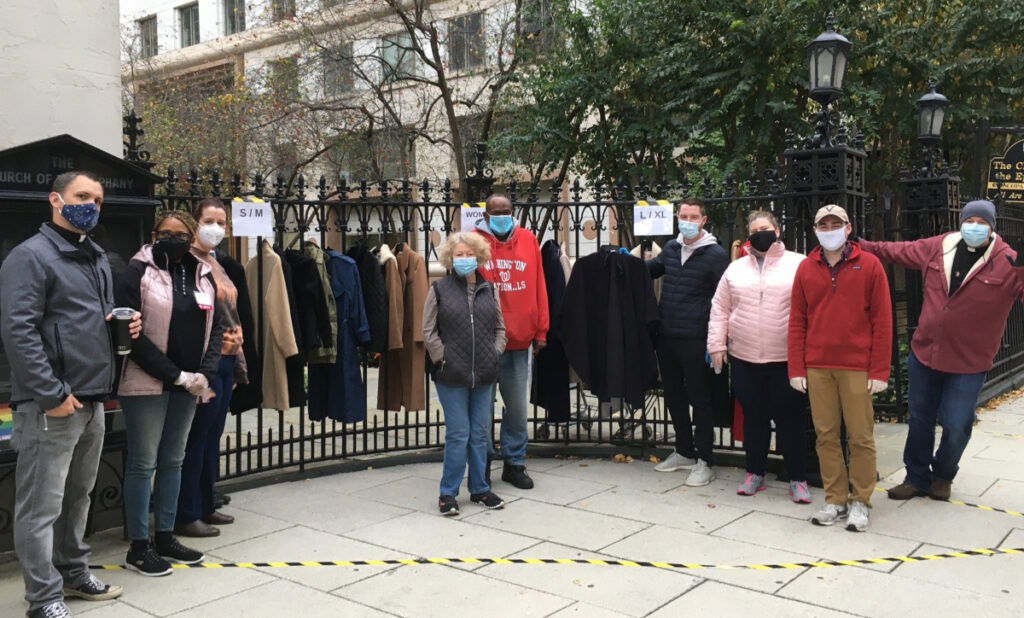
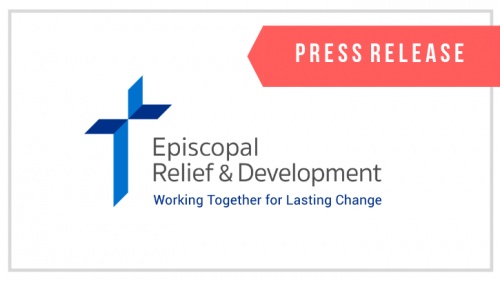
Episcopal Relief & Development Announces Additional COVID-19 Emergency Responses in the United States and Worldwide
Press Release
August 26, 2021
Episcopal Relief & Development is continuing to support partners in the United States and around the world in providing targeted assistance in response to the COVID-19 pandemic.
The organization is partnering with local organizations in Brazil, Sri Lanka and Tanzania on additional emergency responses to support the most vulnerable populations. These international projects are supported primarily by a generous grant from Trinity Church Wall Street.
In Tanzania, with Episcopal Relief & Development support, Mothers’ Union is building on the foundation of its 2020 COVID-19 educational awareness campaign. Working with local government departments, the agency is updating the materials to reflect current guidance and information about the virus. The curriculum will be taught to savings group leaders who were trained last year and to leaders from an additional 16 high-risk dioceses. The leaders will then bring that information back to share with their groups and local communities.
“We know much more about COVID-19 and how it spreads now than we did in the early days of the pandemic,” said Nagulan Nesiah, Senior Program Officer, Disaster Response and Risk Reduction, Episcopal Relief & Development. “This new campaign, shared through our village Savings with Education groups, will help to dispel the misconceptions about the virus and will help equip communities to better protect themselves.”
In the United States, Episcopal Relief & Development is supporting the Episcopal dioceses of East Tennessee, Georgia, Puerto Rico and Southwestern Virginia on new responses to meet additional needs created by the pandemic. The dioceses are assisting marginalized communities through vaccination clinics, incentives for those who receive the vaccine, gift cards for school supplies, assistance in applying for SNAP benefits, medical care, and more.
Vulnerable individuals and families in the Appalachian region are historically underserved. Additionally, the area was already experiencing an economic recession before the pandemic began, the effects of which were multiplied by the impact of COVID-19. The Episcopal Diocese of Southwestern Virginia is providing relief this summer to these communities through Grace House on the Mountain’s network in the region. Grace House on the Mountain, a non-profit community center run by the diocese, is replenishing food pantries to feed 1,500 people and is covering utility expenses for approximately 25 families. Additionally, the diocese is offering assistance with medical expenses, including expenses for care due to COVID-19.
“Many families in the Appalachian region are living just below the poverty line,” says Katie Mears, Senior Director, US Disaster Program, Episcopal Relief & Development. “Through the efforts of dioceses like Southwestern Virginia and East Tennessee, families experiencing economic hardship caused by the pandemic are getting the help they need.”
Donations to the COVID-19 Pandemic Response Fund will enable Episcopal Relief & Development to continue to provide assistance to vulnerable communities impacted by the coronavirus, both in the United States and around the world. Learn more about Episcopal Relief & Development’s response to the COVID-19 pandemic here.
For over 80 years, Episcopal Relief & Development has been working together with supporters and partners for lasting change around the world. Each year the organization facilitates healthier, more fulfilling lives for more than 3 million people struggling with hunger, poverty, disaster and disease. Inspired by Jesus’ words in Matthew 25, Episcopal Relief & Development leverages the expertise and resources of Anglican and other partners to deliver measurable and sustainable change in three signature program areas: Women, Children and Climate.
Photo Courtesy of the Church of the Epiphany, Washington, DC
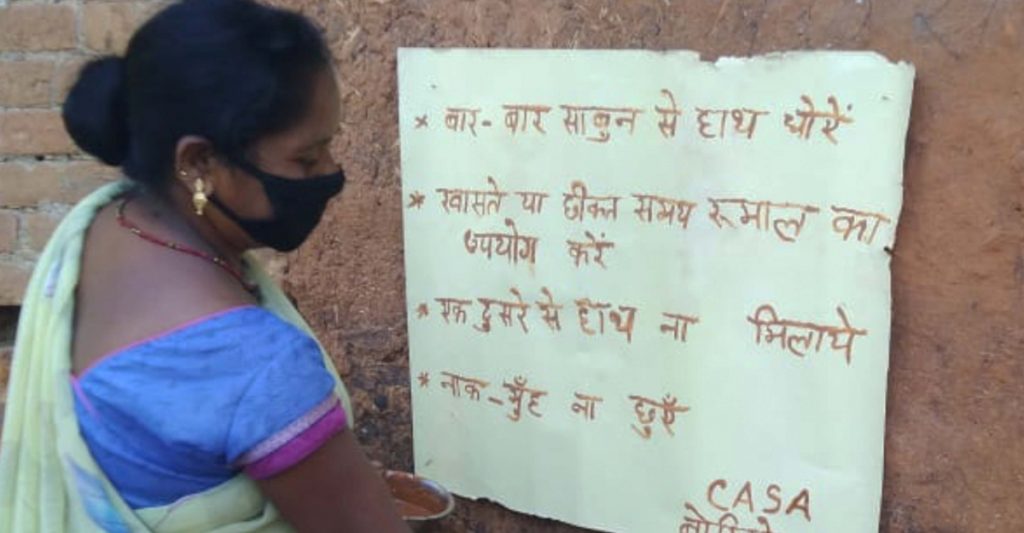
 Episcopal Relief & Development Supports CASA India in COVID-19 Response
Episcopal Relief & Development Supports CASA India in COVID-19 Response
Press Release
Monday, May 10, 2021
Episcopal Relief & Development is supporting its partner Church’s Auxiliary for Social Action (CASA) in responding to needs created by the current COVID-19 crisis in India. CASA is conducting COVID-19 educational awareness campaigns and supplying personal protective equipment and hygiene kits to rural communities.
CASA has identified 15 villages in the Nandurbar District of western India where the organization has relationships to leverage in providing assistance. Due to the remote locations of the villages and lack of Internet connectivity, many in the communities are not aware of how to prevent the spread of COVID-19. There are misconceptions about the vaccine. Additionally, many members of the communities are at higher risk of complications from COVID-19 due to malnutrition and weakened immunity. In April, the Nandubar District reported an 81% increase in cases.
With Episcopal Relief & Development’s support, CASA is conducting a COVID-19 educational campaign. Using wall murals and hand washing stations at prominent market locations, CASA is raising awareness of the importance of hygiene to prevent the spread of the virus. Volunteers and leaders are traveling between the villages making announcements over speakers about the need for vaccination and directing people to vaccination sites run by the government and local health authorities.
Additionally, the agency is providing hygiene kits of face masks, soap and sanitizers to 160 individuals and families, as well as direct financial support to families of COVID-19 patients to help food and medical care.
“The second wave of COVID-19 in India has presented different challenges and needs than the first wave of the virus,” said Nagulan Nesiah, Senior Program Officer, Episcopal Relief & Development. “CASA’s response has been targeted to reach marginalized communities that have not been assisted by other relief efforts.”
Please pray for all those in India and in other places affected by COVID-19. Donations to Episcopal Relief & Development’s COVID-19 Pandemic Response fund will support the organization’s continued emergency response efforts in India and other communities worldwide.
For 80 years, Episcopal Relief & Development has been working together with supporters and partners for lasting change around the world. Each year the organization facilitates healthier, more fulfilling lives for more than 3 million people struggling with hunger, poverty, disaster and disease. Inspired by Jesus’ words in Matthew 25, Episcopal Relief & Development leverages the expertise and resources of Anglican and other partners to deliver measurable and sustainable change in three signature program areas: Women, Children and Climate.
Photo Courtesy of CASA India
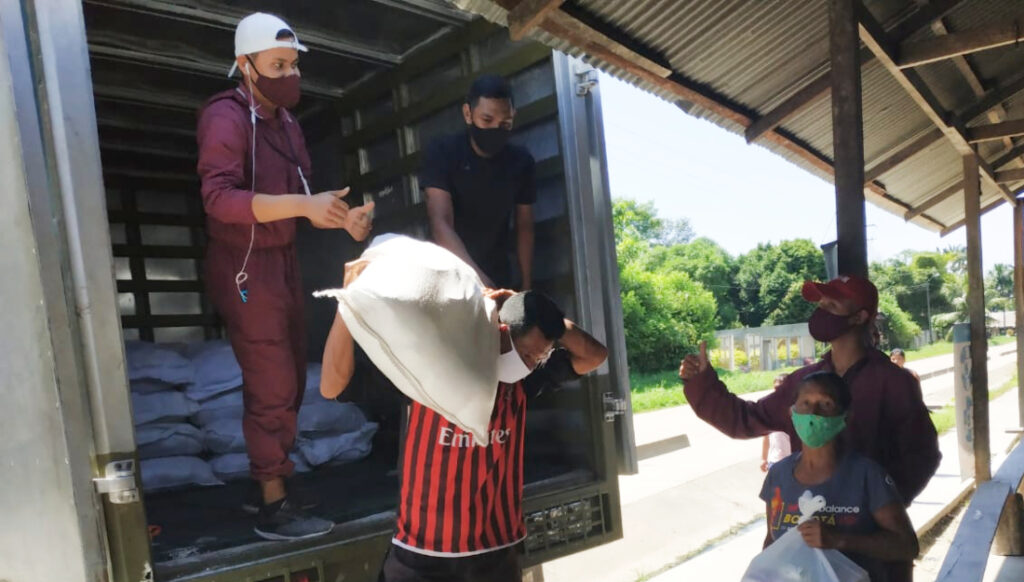

Additional International and Domestic COVID-19 Responses
Web Statement
February 12, 2021
Episcopal Relief & Development continues to support new emergency responses to the COVID-19 pandemic in the United States and around the world. The organization is partnering with local churches and other institutions in Africa, Asia and the Pacific, Latin America and the United States to raise health and safety awareness and to meet tangible needs by supplying food, personal protective equipment, utility and direct assistance to marginalized individuals and families. To date, Episcopal Relief & Development has responded to the COVID-19 pandemic in 45 countries around the world.
Episcopal Relief & Development swiftly adapted programs in light of COVID-19 at the start of the pandemic in early 2020. International Program and US Disaster staff began meeting regularly with both long-term partners and other agencies in the Anglican Communion to provide technical and financial support. The organization continues to meet regularly with partners as needs to continue to evolve in the ongoing pandemic.
Internationally, the organization is now responding to emergency needs in Burundi, Madagascar, Mozambique, the Philippines, Colombia and Peru.
The economic effects of the COVID-19 pandemic, as well as the government-mandated stay-at-home orders, have led to increases in gender-based violence (GBV) in many parts of the world. In response, the Province of the Anglican Church in Burundi (PEAB) has expanded its community-based efforts to combat GBV. PEAB has provided emergency assistance such as temporary shelter, food and counseling for survivors. The Church has also integrated awareness of GBV and COVID-19 into its other programs. Through these efforts, PEAB reached 855 women and 591 men.
Isolated communities in many areas have also struggled as a result of the pandemic. The Anglican Church of Peru is building on its existing food banks in Lima to expand its support of rural indigenous communities in the southern Andean region of Arequipa and Juliaca. The Church is providing daily meals for 90 families by mobilizing church members who will prepare and serve the food, while following COVID-19 prevention protocols such as masks and physical distancing.
“For marginalized communities, the long-term nature of the pandemic has been crippling,” said Nagulan Nesiah, Senior Program Officer, Disaster Risk Reduction, Episcopal Relief & Development. “Our partners are continuing to identify new opportunities to provide targeted assistance to those who need it most.”
In the United States, Episcopal Relief & Development remains in close contact with local Episcopal dioceses. In 2020, the organization provided support to 16 dioceses to respond to COVID-19. The US Disaster team is now supporting emergency assistance through the Episcopal dioceses of Los Angeles, Massachusetts, Olympia and Tennessee and the Episcopal Church in Navajoland (ECN).
ECN serves communities in the four corners of the Navajo reservation located in three states – New Mexico, Arizona and Utah. These communities are often rural and 32% of the residents live below the poverty line. The COVID-19 pandemic spread quickly through the Navajo Nation. In May, the Navajo Nation had the highest rate of COVID-19 per capita in the United States. From mid-November until mid-January, the seven-day average of new cases was greater than the peak of the first wave in May. Families lost income due to illness, quarantines, government restrictions and lack of available jobs, complicating pre-existing financial burdens. ECN is distributing food boxes and gas cards and providing assistance with utilities to help meet these vulnerable communities’ needs.
“Faith leaders have played a critical role in providing spiritual and physical relief throughout this pandemic,” said Tamara Plummer, Program Officer, Episcopal Relief & Development. “Their continued response to the economic hardships experienced as a result of COVID-19 will be vital as communities move into the next phase of the pandemic.”
Learn more about Episcopal Relief & Development’s response to COVID-19 here. To support Episcopal Relief & Development’s response to the COVID-19 Pandemic, please consider making a donation.
For 80 years, Episcopal Relief & Development has been working together with supporters and partners for lasting change around the world. Each year the organization facilitates healthier, more fulfilling lives for more than 3 million people struggling with hunger, poverty, disaster and disease. Inspired by Jesus’ words in Matthew 25, Episcopal Relief & Development leverages the expertise and resources of Anglican and other partners to deliver measurable and sustainable change in three signature program areas: Women, Children and Climate.
Photo Courtesy of Interfaith Rainforest Initiative
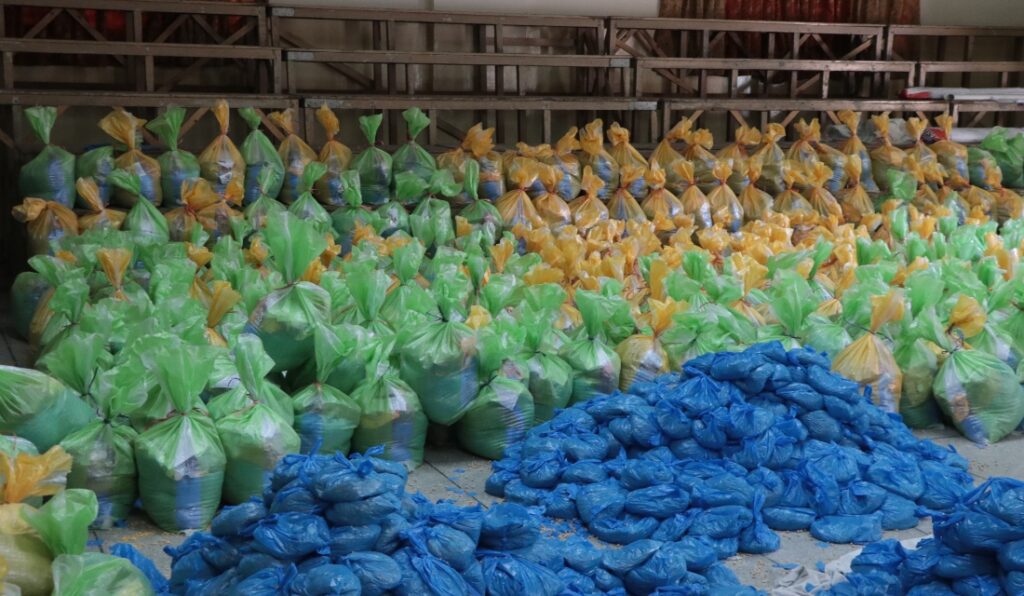
The Diocese of Raiwind, Church of Pakistan, is distributing food, medicine and other emergency supplies to over 1,500 families.

New International COVID-19 Responses and Programs
Web Statement
November 6, 2020
Episcopal Relief & Development is collaborating with partners on new emergency responses to the COVID-19 pandemic in Angola, Brazil, Colombia, Dominican Republic and Pakistan. The organizations are providing food, personal protective equipment and pastoral and emotional support to refugees, indigenous communities, the elderly, women and other marginalized groups. Partners are also educating communities about the coronavirus and how to reduce its potential spread through radio campaigns and training workshops. Episcopal Relief & Development program staff continue to provide technical and financial support to partners in the United States and around the world.
“As the COVID-19 pandemic evolves, our partners are finding new and innovative ways to respond to needs that arise in vulnerable communities,” said Nagulan Nesiah, Senior Program Officer, Disaster Risk Reduction, Episcopal Relief & Development.
The Igreja Anglicana em Angola (IAA) has partnered with communities on a radio campaign with information about hygiene and sanitation to reduce the spread of the coronavirus, reaching 60,000 people. IAA has also trained over 9,372 people on COVID-19 prevention strategies. To ensure the health and safety of participants and group leaders, the organization has adapted its existing Savings with Education (SwE groups) to incorporate physical distancing.
Episcopal Relief & Development’s partners in Brazil and Colombia are providing support to indigenous communities with limited access to medical care. Many of these communities are geographically isolated and have been impacted by the slowdown in tourism due to the pandemic. Interfaith Rainforest Initiative (IRI) is distributing non-perishable foods and hygiene kits of soap, cleaning alcohol, toothpaste and antibacterial hand gel to over 500 men and women in Colombia. Servicio Anglicano de Diacono e Desenvolvimento (SADD), the development arm of the Episcopal Anglican Church of Brazil, is leveraging its ASA (Water, Soap, Love) volunteers to disseminate face masks, medicine and cleaning supplies. SADD also is supporting the cultivation of sustainable vegetable gardens.
The Dominican Republic has been impacted by hurricanes in addition to the COVID-19 pandemic and associated economic shutdowns, further complicating the needs of marginalized communities such as the elderly, children, pregnant women and people in situations of conflict or violence. In response, the Episcopal Diocese of the Dominican Republic is distributing food, face masks, and pastoral and emotional support to 2,800 people.
Learn more about how Episcopal Relief & Development is responding to the COVID-19 pandemic, both in the United States and internationally. This emergency response work is supported by Trinity Church Wall Street and other generous donors. Donations to the COVID-19 Pandemic Response Fund will support additional emergency assistance to marginalized communities who have been impacted by the coronavirus.
For over 75 years, Episcopal Relief & Development has been working together with supporters and partners for lasting change around the world. Each year the organization facilitates healthier, more fulfilling lives for more than 3 million people struggling with hunger, poverty, disaster and disease. Inspired by Jesus’ words in Matthew 25, Episcopal Relief & Development leverages the expertise and resources of Anglican and other partners to deliver measurable and sustainable change in three signature program areas: Women, Children and Climate.
Photo Courtesy of The Diocese of Raiwind, Church of Pakistan
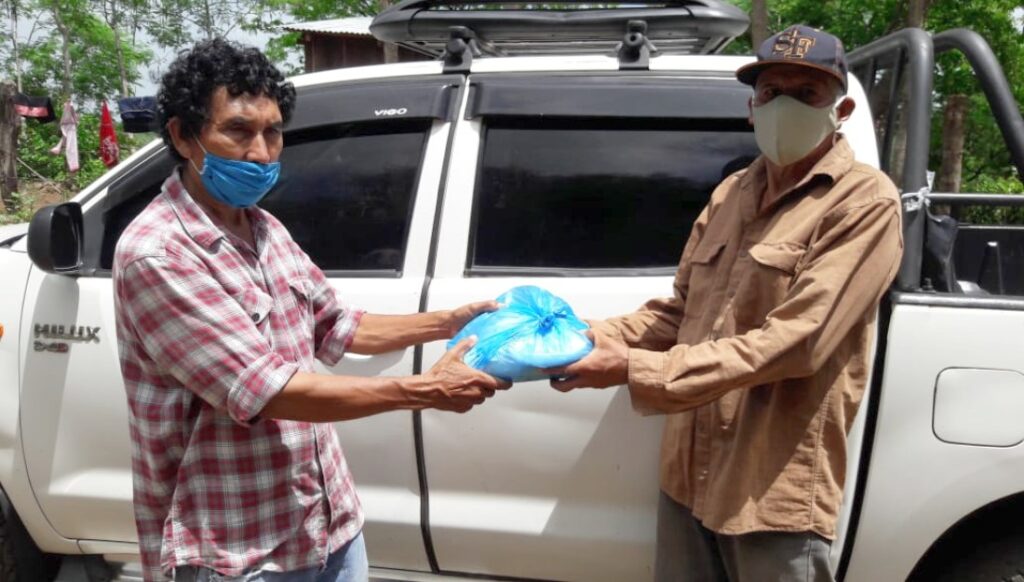

New COVID-19 Programs and Partnerships
Web Statement
September 30, 2020
Episcopal Relief & Development announces new programs and partners around the world and in the United States to provide emergency assistance in response to the COVID-19 pandemic.
The organization is collaborating with partners in Bangladesh, El Salvador, Guatemala, Haiti, Honduras, Lebanon, Namibia and Nicaragua to distribute food, personal protective equipment and hygiene kits with supplies such as hand sanitizer and soap.
“Marginalized communities are particularly vulnerable to the economic and physical effects of the COVID-19 pandemic,” said Nagulan Nesiah, Senior Program Officer, Disaster Risk Reduction, Episcopal Relief & Development. “When additional disasters such as economic crises, explosions, flooding or wildfires are layered on top of the pandemic, the work of our partners to provide assistance becomes even more vital.”
Lebanon’s economic crisis has been exacerbated by the COVID-19 shutdowns. The Episcopal Diocese of Jerusalem, working through the Anglican Alliance in coordination with the Middle East Council of Churches and Episcopal Relief & Development, has been focusing on vulnerable households. The organizations are providing assistance to children with disabilities at the St. Luke’s Center and distributing cash grants to female migrant domestic workers who lost their jobs and homes. Additionally, the agencies are offering food to local families who have lost their livelihoods due to the crisis.
Episcopal Relief & Development is supporting the Episcopal Diocese of Haiti to raise awareness about the novel coronavirus. In coordination with the Haitian Ministry of Health, the diocese and its community volunteers are educating vulnerable people and helping them recognize the need for physical distancing and masks. The diocese is also providing personal protective equipment (PPE) to four communities in Port-au-Prince that have been particularly impacted by COVID-19.
In the United States, the organization is supporting the Episcopal dioceses of California, El Camino Real, Indianapolis, West Texas and others as they supply food, personal protective equipment and other emergency aid to communities affected by COVID-19.
For example, Episcopal Relief & Development is partnering with the Diocese of Indianapolis to leverage its food pantry, The StoreHouse, to provide relief such as gift cards for medication and hygiene products to over 100 individuals and their families. Many of the people impacted have been laid off, furloughed or have had their working hours reduced. The diocese is also assisting through rental and utility support.
Learn more about Episcopal Relief & Development’s COVID-19 Pandemic Response here. Donations to the organization’s COVID-19 Pandemic Response Fund will support additional emergency assistance to marginalized communities who have been impacted by the coronavirus.
For over 75 years, Episcopal Relief & Development has been working together with supporters and partners for lasting change around the world. Each year the organization facilitates healthier, more fulfilling lives for more than 3 million people struggling with hunger, poverty, disaster and disease. Inspired by Jesus’ words in Matthew 25, Episcopal Relief & Development leverages the expertise and resources of Anglican and other partners to deliver measurable and sustainable change in three signature program areas: Women, Children and Climate.
Photo courtesy of Council of Protestant Churches of Nicaragua
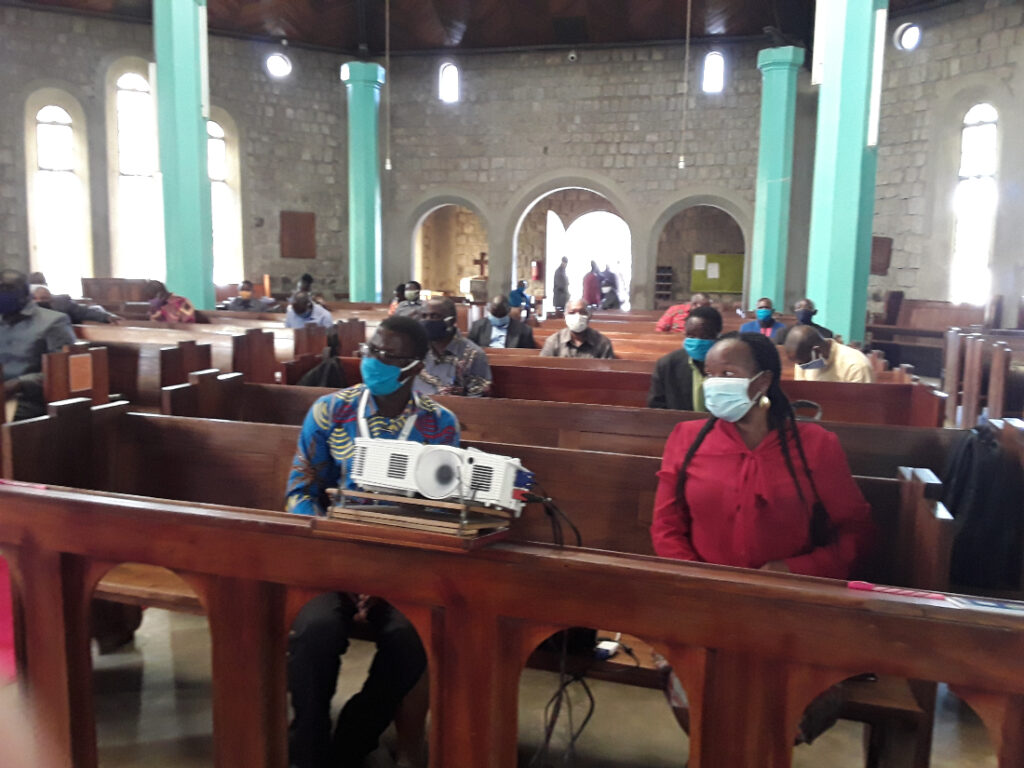

Episcopal Relief & Development Launches New COVID-19 Response Web Section
Web Statement
July 10, 2020
Episcopal Relief & Development has added a new section to the website focusing on the organization’s response to the COVID-19 Pandemic in countries in Africa, Asia and the Pacific, Latin America and the Caribbean and in the United States. These pages contain specific information about how Episcopal Relief & Development is supporting partners in the United States and around the world.
The webpages feature new partnership information about the International Program team’s support in countries such as the Democratic Republic of Congo, Tanzania, South Sudan, India, Honduras and Panama. These responses include food, personal protective equipment and educational campaigns to slow the spread of the coronavirus.
Episcopal Relief & Development is working with the Mother’s Union in Tanzania in order to spread accurate information about the novel coronavirus and how to reduce its transmission. Mother’s Union has a network in Tanzania of over 800,000 women engaged in micro-finance and small business training throughout the country. These women often hold dual roles as caretakers and providers for their families, making them incredibly valuable in preventing COVID-19.
In the United States, the US Disaster Program is supporting new emergency responses in California, Louisiana, Ohio and Oregon.
The organization is working with the Episcopal Diocese of Ohio through the diocese’s ministry, Feeding the Beloved Community. This summer, volunteers and staff are serving 800 meals per week to vulnerable populations in four specific rural and inner-city communities that are marginalized by age, race and finances. This innovative partnership leverages vegetable produce and pork grown by the diocese, and utilizes established networks of volunteers and other community support.
Additionally, the agency’s Program staff continue to provide technical assistance as partners adapt existing programming to incorporate physical distancing and other protocols in order to ensure the safety of staff, volunteers and program participants.
“COVID-19 has had a disproportionate effect on marginalized communities that were already struggling with food security and lack of access to resources,” said Nagulan Nesiah, Senior Program Officer, Disaster Risk and Reduction, Episcopal Relief & Development. “Episcopal Relief & Development will continue to support both long-term partners and emergency responses with programs tailored to the needs and assets of their specific communities.”
Donations to the COVID-19 Pandemic Response Fund will enable Episcopal Relief & Development to continue to support partners around the world as they meet needs created by the effects of the coronavirus.
For over 75 years, Episcopal Relief & Development has been working together with supporters and partners for lasting change around the world. Each year the organization facilitates healthier, more fulfilling lives for more than 3 million people struggling with hunger, poverty, disaster and disease. Inspired by Jesus’ words in Matthew 25, Episcopal Relief & Development leverages the expertise and resources of Anglican and other partners to deliver measurable and sustainable change in three signature program areas: Women, Children and Climate.
Photo courtesy of Anglican Diocese of Kondoa in Tanzania
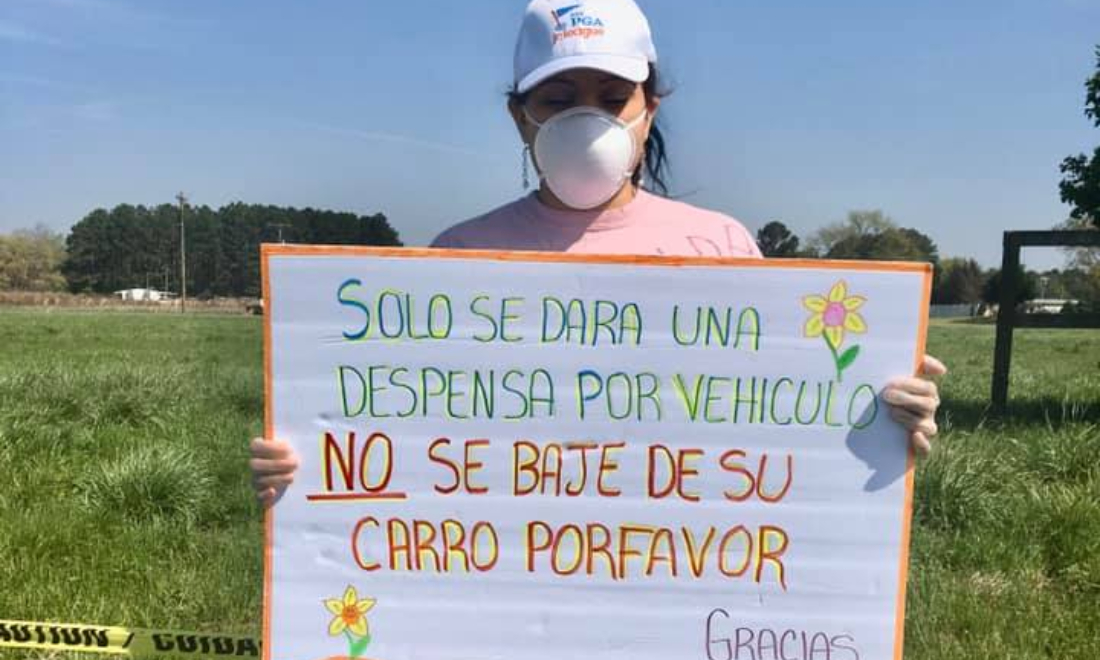

Continuing to Respond to the COVID-19 Pandemic in the United States
Web Statement
June 4, 2020
Episcopal Relief & Development continues to support partners in the United States and around the world in response to needs created by the COVID-19 Pandemic.
In the United States, Episcopal Relief & Development’s US Disaster Program is partnering with the Episcopal dioceses of Louisiana, South Dakota and Tennessee to provide assistance to vulnerable groups that have been impacted by COVID-19 and is adapting programming with the dioceses of East and West Carolina in response to the pandemic. Additionally, US Disaster Program staff continue to offer webinars and other resources to support dioceses and congregations and the unique needs in their local communities.
The Episcopal Diocese of Louisiana, with the support of Episcopal Relief & Development, is providing direct support in New Orleans for vulnerable communities impacted by the coronavirus and the related stay-at-home orders. This partnership has distributed food to 200 vulnerable families in the West Bank neighborhood. The diocese is also delivering 250 meals per week in the 6th, 7th and 9th wards to young people, gig workers and musicians.
In South Dakota, the Rosebud Reservation is facing similar challenges. Due to the COVID-19 pandemic’s shelter-in-place orders, many members of the Rosebud Sioux Tribe are not able to work, and therefore, are in need of food and supplies. The Episcopal Diocese of South Dakota is partnering with Episcopal Relief & Development to provide gas, diapers, food and to meet other emergency needs on the Reservation.
The Episcopal Diocese of Tennessee is also providing direct cash assistance to minority, immigrant, refugee and undocumented communities who are still recovering from the March 3 tornado in Nashville, and who have lost wages due to the shutdowns.
The Episcopal Farmworker Ministry, a long-term partner with Episcopal Relief & Development, is adapting programming in order to both respond to COVID-19 and to increase disaster resilience among farmworkers in the diocese of East and North Carolina. Farmworkers in this area have been hit by consecutive hurricanes almost annually since Hurricane Matthew in 2016 and are particularly vulnerable to disasters due to language barriers and the likelihood of losing income when a storm hits the area. The Episcopal Farmworker Ministry is providing meals, and hygiene and cleaning kits to local families and farmworker camps, as well as rental assistance, furniture, appliances and home repair, and mental health services.
“What remains true about disasters is how unpredictable they are, and that, unfortunately, marginalized communities experience them in much more profound ways,” said Katie Mears, Senior Director for the US Disaster Program. “I stand in awe of how Episcopal churches have been able to build off of existing ministries in areas that were hit especially hard by COVID-19.”
Donations to the COVID-19 Pandemic Response Fund will enable Episcopal Relief & Development to continue to provide emergency aid to vulnerable communities impacted by the novel coronavirus, both in the United States and around the world.
For over 75 years, Episcopal Relief & Development has been working together with supporters and partners for lasting change around the world. Each year the organization facilitates healthier, more fulfilling lives for more than 3 million people struggling with hunger, poverty, disaster and disease. Inspired by Jesus’ words in Matthew 25, Episcopal Relief & Development leverages the expertise and resources of Anglican and other partners to deliver measurable and sustainable change in three signature program areas: Women, Children and Climate.
Photo courtesy of Episcopal Farmworker Ministry
 Supporting International Program Partners in Response to the COVID-19 Pandemic
Supporting International Program Partners in Response to the COVID-19 Pandemic
Web Statement
June 3, 2020
Episcopal Relief & Development continues to support partners around the world in response to the novel coronavirus. International Program staff are providing technical guidance through on-going community of practice calls where partners can share resources, experiences and tips. The organization is also financially supporting partners in Burundi and Malawi to meet specific needs for awareness campaigns and personal protective equipment (PPE) in their communities.
The Province of the Anglican Church in Burundi and the Anglican Council of Malawi, are focusing on educating rural communities with hygiene and sanitation best practices to reduce the spread of the novel coronavirus. By mobilizing existing networks of volunteers through phone trees and What’s App messages, the dioceses are raising awareness about the virus and emphasizing the need for communities to look out for their neighbors. The Anglican Council of Malawi is also providing PPE to three local hospitals and health facilities in the dioceses of Lake Malawi and Northern Malawi.
Episcopal Relief & Development has been a long-time supporter of the Episcopal Diocese of Jerusalem’s Jerusalem Princess Basma Centre (JBPC), which provides comprehensive therapies for children with disabilities. When local governments shut down institutions and put travel restrictions in place in response to COVID-19, JBPC quickly transitioned to offering virtual services for children and their families. The center is now preparing for the return of children to the facility as restrictions are lifted. Episcopal Relief & Development is partnering with JPBC to help their team prepare the facilities and adapt programming with appropriate safety precautions such PPE, smaller groups, physical distancing and enhanced sanitation practices.
“Our partners continue to display great resilience as they adapt to meet the on-going needs created by the COVID-19 Pandemic,” said Nagulan Nesiah, Senior Program Officer, Disaster Risk and Reduction, Episcopal Relief & Development. “Episcopal Relief & Development remains committed to supporting our partners in the long-term as the crisis continues to evolve.”
Episcopal Relief & Development will share updates in the coming weeks as staff and partners continue to provide emergency and long-term assistance. Donations to the COVID-19 Pandemic Response Fund will continue to support their response both in the United States and around the world.
For over 75 years, Episcopal Relief & Development has been working together with supporters and partners for lasting change around the world. Each year the organization facilitates healthier, more fulfilling lives for more than 3 million people struggling with hunger, poverty, disaster and disease. Inspired by Jesus’ words in Matthew 25, Episcopal Relief & Development leverages the expertise and resources of Anglican and other partners to deliver measurable and sustainable change in three signature program areas: Women, Children and Climate.
Photo caption: Episcopal Relief & Development’s Program staff convene partners in a Community of Practice call to share resources, tips and experiences.
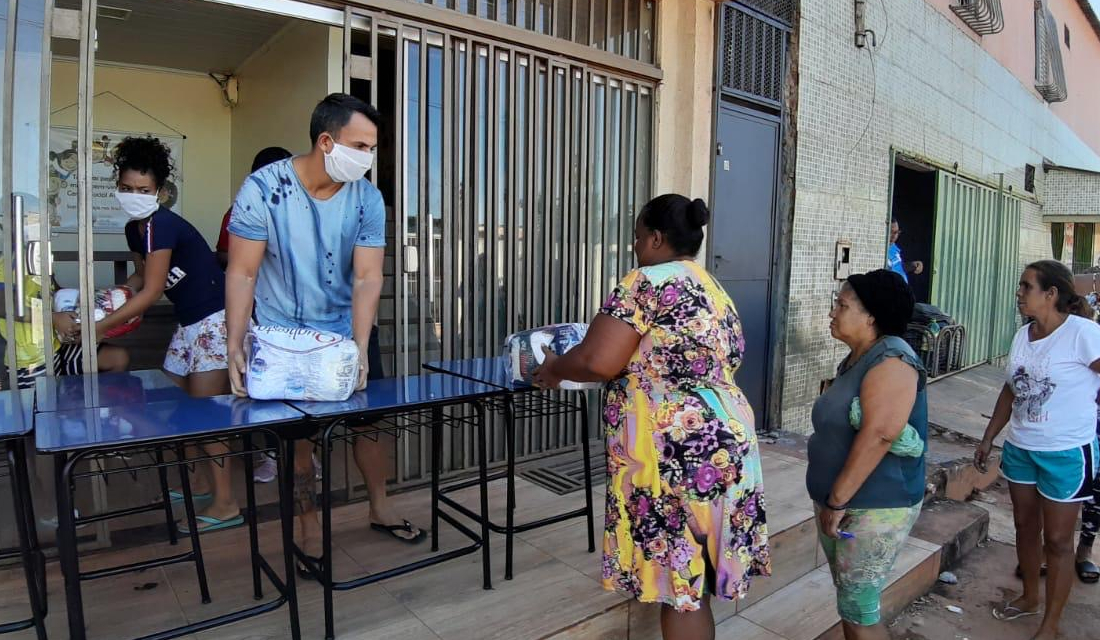

Episcopal Relief & Development Continues to Partner with Local Organizations Worldwide in Response to COVID-19
Press Release
May 14, 2020
Episcopal Relief & Development continues to partner with local organizations and dioceses around the world to provide technical and financial aid in response to the novel coronavirus. The organization is in close contact with partners in 44 countries, including the United States, to assist as they adapt existing programs and to respond to specific needs created by the crisis.
In response to the physical distancing guidelines recommended by local health authorities, Episcopal Relief & Development and local partners are adapting programs to reduce the spread of the coronavirus. For example, the Anglican Development Services of Nyanza (ADS-Nyanza) in southeastern Kenya is working with the Kenya Government Ministry of Health, Episcopal Relief & Development and other organizations on the prevention, control and home management of COVID-19. ADS-Nyanza is equipping their Community Health Volunteers and Early Childhood Promoters with personal protective equipment (PPE) and providing handwashing facilities in strategic social places as well as supporting contact tracing in several counties.
Similarly, with Episcopal Relief & Development’s guidance and support, the Anglican Diocese of Kondoa in Tanzania has begun integrating COVID-19 prevention recommendations into their Savings with Education groups. Group facilitators have been equipped with mobile phones so they can lead efforts remotely via text messaging and phone calls. Distribution of emergency supplies and food rations for those impacted by the virus and shutdowns is being conducted using appropriate safety guidelines such as personal protective equipment (PPE) and physical distancing.
As COVID-19 cases grew in Myanmar, the Church of the Province of Myanmar, in partnership with Episcopal Relief & Development, established a COVID Response Committee. The Church mobilized COVID-19 health messaging and awareness resources from the Ministry of Health and disseminated information through all eight diocesan networks. Church staff then coordinated with regional government departments to identify vulnerable households in order to provide material support such as basic food, sanitation and hygiene supplies.
Episcopal Relief & Development is also working in other countries to provide emergency food and supplies to vulnerable communities impacted by the stay-at-home orders and shutdowns. In partnership with Hope Africa, the agency is distributing food parcels to rural communities in the dioceses of Zululand and Khahlamba in South Africa. The Episcopal Diocese of Ecuador is distributing food and medical supplies to the elderly, single women and children in highly impacted areas of coastal Ecuador. In Brazil, Servicio Anglicano de Diacono e Desenvolvimento (SADD), the development arm of the Episcopal Anglican Church of Brazil, is providing food, hygiene and cleaning supplies to women, adolescents and children, particularly those in vulnerable communities such as those without homes, domestic violence survivors and other low-income communities. In Pakistan, the Women Development & Service Society (WDSS), a ministry of the Diocese of Raiwind, Church of Pakistan, is distributing food and emergency supplies to over 1,500 families.
Several partners are offering additional emergency support to their communities. SADD in Brazil is providing PPE such as face masks and lab coats to healthcare professionals. The Anglican Diocese of Colombo in Sri Lanka is helping to sanitize schools and to provide them with PPE and thermometers which will allow the schools to open safely when the country begins to reopen.
“Our Program Officers continue to meet virtually with partners in weekly Community of Practice calls to share knowledge and provide technical support,” said Abagail Nelson, Executive Vice President, Episcopal Relief & Development. “I am encouraged to see how our partners are learning, adapting and working together to serve their communities in this challenging time.”
Donations to the COVID-19 Pandemic Response Fund will enable Episcopal Relief & Development and their partners to continue to provide emergency assistance to communities, both in the United States and around the world, that have been impacted by the coronavirus. In the coming weeks and months, additional updates will be provided about the ongoing response to this crisis.
For over 75 years, Episcopal Relief & Development has been working together with supporters and partners for lasting change around the world. Each year the organization facilitates healthier, more fulfilling lives for more than 3 million people struggling with hunger, poverty, disaster and disease. Inspired by Jesus’ words in Matthew 25, Episcopal Relief & Development leverages the expertise and resources of Anglican and other partners to deliver measurable and sustainable change in three signature program areas: Women, Children and Climate.
Photo Courtesy of Servicio Anglicano de Diacono e Desenvolvimento


Episcopal Relief & Development and US Partners Respond to COVID-19
Press Release
May 7, 2020
Episcopal Relief & Development is supporting Episcopal Dioceses in the United States in response to the novel coronavirus (COVID-19). The organization’s US Disaster Program is providing resources, technical support and funding to meet specific needs related to the pandemic in communities around the country.
Since mid-March, the US Disaster team, in partnership with the Presiding Bishop’s office, has been holding weekly calls with bishops and key leaders in Episcopal dioceses to address the novel coronavirus pandemic. Initial steps included faith-based resources to help bishops and diocesan staff determine how to safely conduct services and to maintain community in a pandemic. As the pandemic progressed and states issued stay-at-home orders, the US Disaster team offered weekly webinars on a variety of topics such as mental health, isolation, institutional support and immigration, as well as other resources to help diocesan partners address the widespread impact of the coronavirus. The US Disaster Program continues to provide technical support as partners determine how to best respond to the unique needs in their communities, whether that be mental health care, medical care, financial assistance or other needs.
“Episcopal Relief & Development collaborates with partners to tailor very specific responses to specific needs in each community through our asset-based approach,“ said Katie Mears, Senior Director, US Disaster Program, Episcopal Relief & Development. “By working with dioceses to leverage local gifts and resources, we meet needs that are not being met by other organizations. I am continually impressed by how the Church has risen up and found innovative ways to be present in their communities and to serve their neighbors.”
In North Carolina, Texas and Puerto Rico, the US Disaster Program is working with long-term partners to adapt programming in light of the coronavirus and physical distancing guidelines. Many marginalized communities were already dealing with issues such as lower income or inconsistent employment, mental health concerns, lack of medical insurance and substandard housing. All of these challenges have become even more of a concern in light of the pandemic.
The Episcopal Farmworkers Ministry in North Carolina is working to meet the increased demand for their services particularly related to food, offering culturally-contextualized public health messaging and working with the state government to create standards for businesses that protect the needs of their workers. The Episcopal Diocese of Texas’ Hurricane Harvey Recovery Program is working to reduce the stigma around mental health services and to connect people with mental health resources. While following physical distancing protocols, the diocese is also continuing to provide food to vulnerable communities through the Abundant Harvest Ministry. The Episcopal Diocese of Puerto Rico’s Programa REDES is delivering food, water and supplies to help individuals and families who are recovering from the earthquakes earlier this year and now have been impacted by the effects of COVID-19.
In other areas of the US, Episcopal Relief & Development is partnering with dioceses on new initiatives to address the effects of the pandemic.
Rural communities in the United States often lack access to mental health care. Additionally, the stigma surrounding this care often means individuals don’t ask for help. For example, the rate of suicide in rural Missouri has skyrocketed in recent years and the COVID-19 pandemic is likely to exacerbate the situation. The Episcopal Diocese of Missouri is training 70 volunteers in Randoph and Boone counties in first aid for mental health to help identify individuals at risk in their communities and to connect these individuals with local behavioral health resources.
In Pendelton, Oregon, the Episcopal Diocese of Eastern Oregon is assisting individuals and families who have been affected by both the coronavirus and historic floods that devastated the community in early February, damaging or destroying more than 400 buildings and homes. The diocese had to adjust plans for the flooding response quickly as stay-at-home and social distancing guidelines were issued. The closure of non-essential businesses created other economic concerns. With the support of Episcopal Relief & Development, the diocese is providing assistance with rent, food and other needs to impacted individuals and families.
The COVID-19 pandemic has curtailed many of the services available to migrants in shelters on the US-Mexico border, such as La Casa Shelter, which is supported by the Episcopal Diocese of Arizona. The diocese is working with shelter staff to implement physical distancing and provide virtual support to keep all of the residents safe and healthy as they navigate the US immigration process. The Diocese of Arizona has a long-standing relationship with Cruzando Fronteras and the shelter. With the support of Episcopal Relief & Development, it is leveraging these relationships to adapt the emotional, physical and pastoral assistance provided to migrants in the shelter under the current situation.
Episcopal Relief & Development staff continue to be in contact with partners in 44 countries to offer aid and support in response to the coronavirus in their communities. The organization will continue to provide updates in the coming weeks on their response, both in the United States and around the world. Donations to Episcopal Relief & Development’s COVID-19 Pandemic Response Fund will continue to support the coronavirus program response both in the United States and around the world.
For over 75 years, Episcopal Relief & Development has been working together with supporters and partners for lasting change around the world. Each year the organization facilitates healthier, more fulfilling lives for more than 3 million people struggling with hunger, poverty, disaster and disease. Inspired by Jesus’ words in Matthew 25, Episcopal Relief & Development leverages the expertise and resources of Anglican and other partners to deliver measurable and sustainable change in three signature program areas: Women, Children and Climate.
Photo Courtesy of Episcopal Diocese of Texas
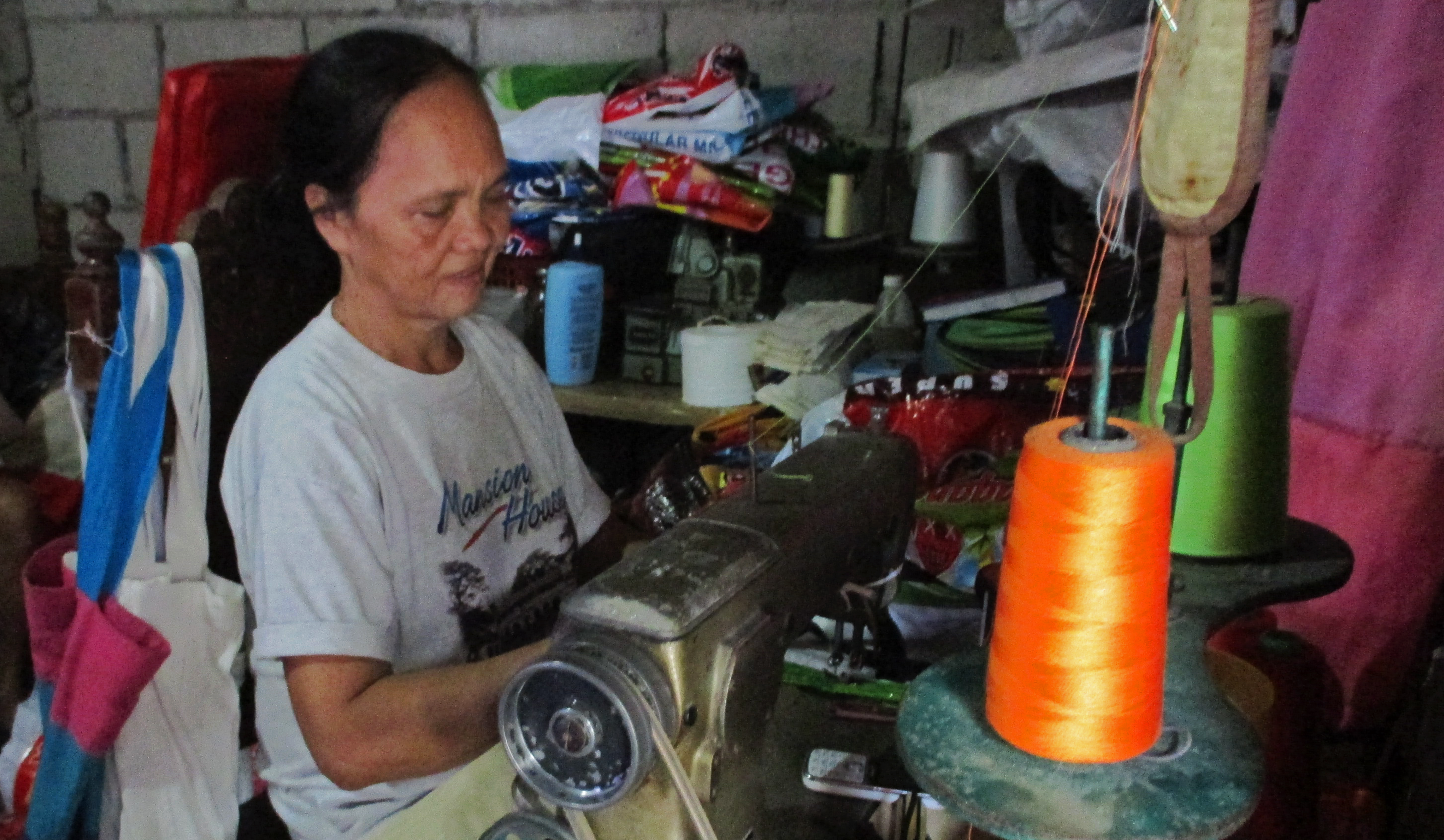
Episcopal Relief & Development and Program Partners Respond in Communities Impacted by COVID-19
Press Release
April 20, 2020
Episcopal Relief & Development is providing financial and technical support to partner organizations in Asia, Africa and the Middle East in response to the COVID-19 Pandemic. The organization continues to be in close contact with partners in 44 countries, including the United States, to provide assistance for communities affected by the novel coronavirus.
“The coronavirus pandemic has adversely impacted communities all over the world,” said Nagulan Nesiah, Senior Program Officer, Disaster Response & Risk Reduction for Episcopal Relief & Development. “We are working together with our partners to determine how to respond to the urgent needs for the most vulnerable populations, whether it be food supply, medical equipment, best practices for physical distancing, hygiene or other critical supplies.”
In the Philippines, Episcopal Relief & Development is partnering with the E-CARE Foundation in the production of personal protective equipment (PPE) for medical staff. As in many countries, hospitals are experiencing a shortage of critical PPE. At least one medical center, the Lung Center of the Philippines temporarily stopped accepting new patients as a result. E-CARE partners such as KASALIKA, a local community group of women organized by E-CARE, and other smaller groups will produce approximately 6,000 face masks and 1,000 gowns which will be donated primarily to hospitals in Quezon City, where there is a concentration of coronavirus treatment centers.
Other partners such as Fellowship of Middle East Evangelical Churches, the Episcopal Diocese of Jerusalem and the Church of Bangladesh are also providing PPE, hygiene kits and essential medical supplies through partners. These critical supplies will help medical staff safely treat coronavirus patients and will help slow the spread of the disease through improved sanitation practices.
With the support of Episcopal Relief & Development, the Anglican Diocese of Guinea is coordinating with local governing officials to launch an educational campaign about the importance of hygiene in slowing down the transmission of the virus. The diocese plans to serve over 300 families through hygiene and sanitation kits.
Episcopal Relief & Development’s International Program staff is also providing guidance and expertise in Sri Lanka. The Dioceses of Colombo and Kurunegala are distributing food, while following best practices for physical distancing, to plantation and day workers who have lost income due to the virus and shutdowns. Program staff are in close contact with other partners as they determine how best to respond to needs in their communities.
Domestically, the US Disaster Program is holding weekly partner coordination calls and public webinars to offer support to Episcopal dioceses, churches, individuals and other groups. Resources for a faith-based response to epidemics and pandemics are available here.
“One of the great strengths of Episcopal Relief & Development is our communities of practice in the areas of women, children and climate,” said Tammi Mott, Vice President, International Program Operations, Episcopal Relief & Development. “Weekly we virtually bring together our networks of partners to exchange their experiences, knowledge and mutual support. These networks are critical for identifying both immediate responses and longer-term program adaptations in the face of the novel coronavirus.”
Donations to Episcopal Relief & Development’s COVID-19 Pandemic Response Fund will continue to support partners around the world and in the United States in responding to the coronavirus.
For over 75 years, Episcopal Relief & Development has been working together with supporters and partners for lasting change around the world. Each year the organization facilitates healthier, more fulfilling lives for more than 3 million people struggling with hunger, poverty, disaster and disease. Inspired by Jesus’ words in Matthew 25, Episcopal Relief & Development leverages the expertise and resources of Anglican and other partners to deliver measurable and sustainable change in three signature program areas: Women, Children and Climate.

Supporting the Multi-religious Faith in Action COVID-19 Initiative
Web Statement
April 17, 2020
Episcopal Relief & Development is proud to be one of the many organizations participating in the Multi-religious Faith in Action COVID-19 Initiative to raise awareness of the impacts of the COVID-19 pandemic on children throughout the world. This initiative is coordinated by Religions for Peace (RFP) and UNICEF with support from Joint Learning Initiative on Faith and Local Communities as part of a global partnership on Faith and Positive Change for Children, Families and Communities.
This global coalition came together to share best practices in response to the novel coronavirus and will strengthen inter-faith collaboration and community mobilization in countering the pandemic. The initiative shares resources on topics such as effective communication; countering false information, stigma and discrimination; religious gatherings and adapting funerals burials and other rituals; promoting spiritual well-being, resilience and community service; protecting children and vulnerable populations and addressing the special needs of people in low resource settings.
“The Multi-religious Faith in Action COVID-19 Initiative is a great opportunity to join together with other organizations to share knowledge and best practices that will enable a more effective response to the novel coronavirus,” said Abagail Nelson, Executive Vice President, Episcopal Relief & Development. “By sharing resources, we can work together, in faith, to create lasting change in the lives of children around the world.”
For over 75 years, Episcopal Relief & Development has been working together with supporters and partners for lasting change around the world. Each year the organization facilitates healthier, more fulfilling lives for more than 3 million people struggling with hunger, poverty, disaster and disease. Inspired by Jesus’ words in Matthew 25, Episcopal Relief & Development leverages the expertise and resources of Anglican and other partners to deliver measurable and sustainable change in three signature program areas: Women, Children and Climate.

Our Programs Respond to COVID-19
Web Statement
April 3, 2020
Episcopal Relief & Development is working with program partners, both in the United States and around the world, to adapt programming in light of the novel coronavirus pandemic. Our programs rely on partners visiting communities in-person for a range of activities including conducting home visits, collecting family and child health data, supporting savings groups, distributing emergency supplies after a disaster, and teaching early childhood development principles. Particularly in remote areas, face-to-face contact is a part of how Episcopal Relief & Development and our partners work. As a result, we are reevaluating how we can continue to support the communities we work with while protecting the safety of our partners, staff and program participants.
Health authorities, including the Centers for Disease Control (CDC) and the World Health Organization, have recommended physical distancing as a way to slow the infection rate of the coronavirus. Additionally, many local authorities, both in the United States and abroad, have instituted guidelines to stay at home or to shelter in place.
In mid-March, our program staff reached out to all our partners to learn how the coronavirus was impacting their communities specifically and to support them as we navigate the pandemic together. We received over 100 responses from 44 countries around the world.
“We were encouraged to hear from so many partners from Africa, Asia-Pacific, Latin America & the Caribbean and the United States,” said Nagulan Nesiah, Senior Program Officer, Disaster Response & Risk Reduction for Episcopal Relief & Development. “Their responses were a reminder that we are truly one Church body, all called to share God’s love with our brothers and sisters in Christ.”
Several themes came up in the responses to the survey. Most importantly, all our program partners affirmed their role in continuing to serve the most vulnerable communities and seeing themselves as a trusted source of information to those they serve. Protocols are being set in place in order to continue to safely serve these communities, and we remain committed to our work.
It is also clear from responses that the coronavirus is having a disproportionate effect on the most vulnerable and marginalized communities, many of whom lack the resources to stockpile food and supplies. Many partners shared concerns about the loss of income that is faced by those who cannot work due to physical distancing measures or the closure of non-essential businesses. Some governments are closing borders to protect their citizens from the coronavirus. In several countries, for example, the Democratic Republic of the Congo, El Salvador, Myanmar and Venezuela, daily and weekly shopping trips in many communities often depend on crossing the border. Border closures create additional food insecurity.
Several partners expressed that connectivity and technology is a barrier in some of the communities that we work in. Our program team is supporting partners in developing systems and strategies to take advantage of technology where possible and to find alternative, safe ways of responding in areas where connectivity is a challenge. These connectivity challenges can also make consistent communication with some of our partners difficult. One partner in the Philippines reported needing to travel one kilometer from their home in order to connect to the internet.
Other partners shared concerns about facing the pandemic and the reality of physical distancing in communities without running or clean water, where many are living with HIV, malaria and other illnesses that compromise the immune system. In many countries, the health care system is not equipped to respond to such a crisis.
As an organization, we are already responding by developing or enhancing tools to support partners as they serve their communities. These tools promote spiritual, humanitarian relief, equipment, health messaging and pastoral ministries while conforming to physical distancing and other public health guidelines. For example, safe practices can address how to feed vulnerable households while minimizing the spread of the virus or how communities can develop a timetable so that water collection at wells are spaced apart to avoid gatherings of people.
Additional specific needs will become clear as the COVID-19 pandemic continues to evolve. Our team is already beginning to hear from partners such as the Anglican Diocese of Guinea about tangible ways Episcopal Relief & Development can support them in response to the needs created by the coronavirus. We will continue to share updates in the coming weeks and months.
“The situation created by the novel coronavirus pandemic is unprecedented and much is uncertain right now,” said Abagail Nelson, Executive Vice-President for Episcopal Relief Development. “And yet, God is good. All the time, God is good. God is with us. God is calling us all to be together with our acts of love: our time, our talents and our treasure. And Episcopal Relief & Development is responding to this call.”
To support Episcopal Relief & Development’s response to the COVID-19 Pandemic, please consider making a donation. Learn more about a faith-based response to epidemics and pandemics here.
For over 75 years, Episcopal Relief & Development has been working together with supporters and partners for lasting change around the world. Each year the organization facilitates healthier, more fulfilling lives for more than 3 million people struggling with hunger, poverty, disaster and disease. Inspired by Jesus’ words in Matthew 25, Episcopal Relief & Development leverages the expertise and resources of Anglican and other partners to deliver measurable and sustainable change in three signature program areas: Women, Children and Climate.

Episcopal Relief & Development Responds to the COVID-19 Pandemic
Web Statement
March 25, 2020
Episcopal Relief & Development is taking steps to ensure the health and safety of all employees, partners and program participants in response to the novel coronavirus pandemic (COVID-19).
Our team is creating resources for partners to enable them to continue to serve their communities during this time, and we are also adjusting programming to allow for physical distancing recommended by health officials. We recognize that the COVID-19 pandemic is ongoing and fluid and has created challenges for partners, individuals and communities in the United States and around the world, and we remain committed to supporting program partners in their work to serve vulnerable communities.
In support of the recommendations by local, state and federal authorities, and to protect the health of employees, we have responded in the following ways:
- Canceling or postponing all domestic and international travel until May 15, 2020.
- Closing the New York City office out of an abundance of caution as of March 18, 2020.
- Closing the Ghana regional office on March 23, 2020.
- Setting up systems and protocols for all employees to telecommute.
While Episcopal Relief & Development staff may not be in the office, our team is continuing to work remotely to support program partners both domestically in the United States and around the world.
The US Disaster Program is responding to the pandemic by equipping Episcopal dioceses, congregations and individuals to know the facts, combat fear, and continue to offer worship, resources and services to the most vulnerable in ways that minimize risk and maintain safety. We have created resources for a faith-based response to epidemics, including Bible studies and on-going weekly webinars to help address the challenges created by the virus and the physical distancing that is recommended by health experts.
Episcopal Relief & Development is also in contact with both domestic and international partners to provide support as partners respond to the virus and adjust existing programming. For the safety of staff, partners and program participants, our teams are reevaluating how to safely conduct programs while still achieving measurable results. Many current programs depend on in-person contact and have developed protocols to provide the physical distancing needed at this time.
The COVID-19 Pandemic Response Fund was established to enable the organization to continue to respond to the pandemic. Donations to this fund support the creation of additional critical resources to help local communities both immediately and in the long run, and will ensure the most up-to-date and accurate information about the disease is shared through ongoing trainings on personal and community preparedness as the crisis evolves. This fund will also support partners as they respond to the needs of high-risk communities who are most vulnerable to COVID-19.
“During this time of uncertainty, Episcopal Relief & Development remains committed to caring for our staff and partners,” said Robert W. Radtke, President & CEO, Episcopal Relief & Development. “We will continue to adapt and respond to meet the needs of the most vulnerable throughout the COVID-19 pandemic.”
For additional resources and tools for a faith-based response to epidemics, click here. Donations to the COVID-19 Pandemic Response Fund to support our response can be made online or through the mail to Episcopal Relief & Development, Attn: Katie Heiston, PO Box 7058, Merrifield, VA 22116-7058, where it will be processed by our mail house.
For over 75 years, Episcopal Relief & Development has been working together with supporters and partners for lasting change around the world. Each year the organization facilitates healthier, more fulfilling lives for more than 3 million people struggling with hunger, poverty, disaster and disease. Inspired by Jesus’ words in Matthew 25, Episcopal Relief & Development leverages the expertise and resources of Anglican and other partners to deliver measurable and sustainable change in three signature program areas: Women, Children and Climate.

